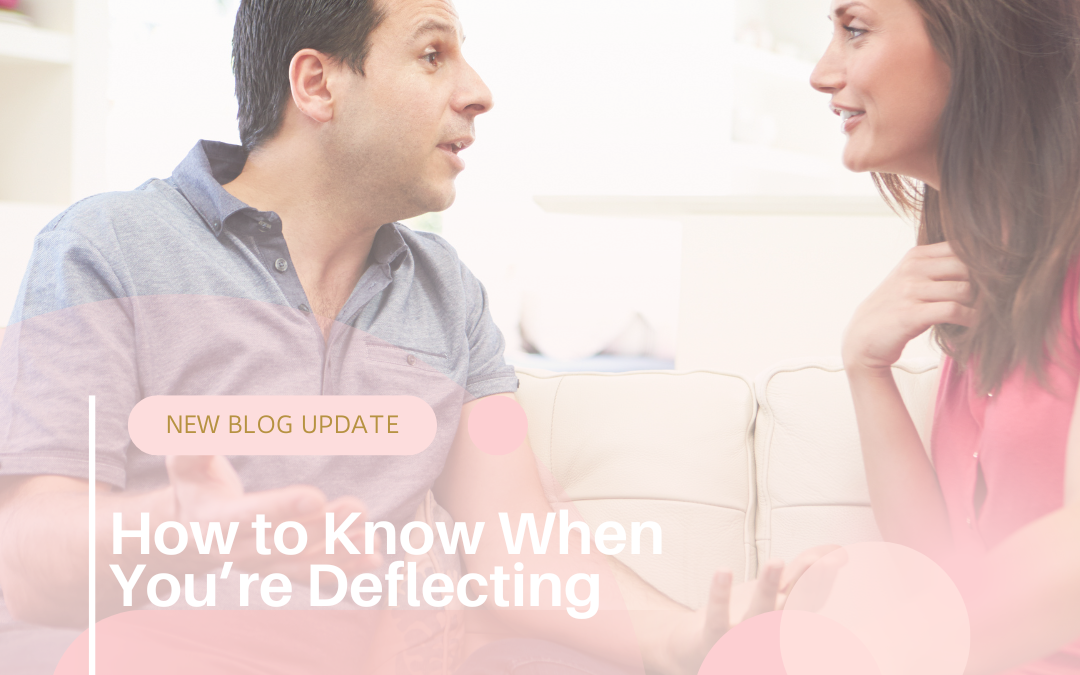We’ve all had moments where we dodge uncomfortable truths—cracking a joke in a serious moment, shifting blame, or steering a conversation away from our feelings. These subtle moves may seem harmless, but they can be signs of deflection, a coping mechanism that keeps us from facing our emotions head-on.
In this blog post, we’ll explore what deflection is, how to recognize it in your daily interactions, and what you can do to start responding instead of avoiding.
What Is Deflection?
Deflection is a defense mechanism used to avoid dealing with uncomfortable thoughts, emotions, or feedback. It usually happens unconsciously and can take many forms, including:
-
Changing the subject when a sensitive topic comes up
-
Making jokes to downplay serious emotions
-
Shifting blame onto someone else
-
Answering vulnerability with sarcasm or criticism
-
Saying things like, “Let’s not get into this,” or “That’s not a big deal”
Deflection isn’t necessarily malicious—it’s often a learned behavior that helps us avoid discomfort, shame, or emotional vulnerability. But when it becomes a pattern, it can prevent meaningful connection, stall personal growth, and create emotional distance in relationships.
Why Do People Deflect?
At its core, deflection is about self-protection. People deflect because:
-
They fear being judged or misunderstood
-
They’ve learned to hide emotions in order to appear strong or in control
-
They’re uncomfortable with conflict or confrontation
-
Vulnerability feels unsafe due to past experiences
For some, deflection starts in childhood—especially in environments where emotions were dismissed, punished, or ignored. Over time, it can become a reflex that masks deeper feelings of fear, insecurity, or shame.
Signs You Might Be Deflecting
Being honest with yourself is the first step toward change. Here are key signs that you may be deflecting:
1. You Change the Subject When Things Get Emotional
If someone brings up something personal or vulnerable and you quickly steer the conversation elsewhere, this may be a form of emotional avoidance.
2. You Use Humor to Cover Discomfort
Joking about your own pain—or someone else’s—can be a way to keep things light and dodge serious emotions.
3. You Point Fingers Instead of Looking Inward
If your default is to blame others when things go wrong, you might be deflecting responsibility or accountability.
4. You Feel Uncomfortable With Compliments or Praise
Downplaying your achievements or quickly turning the attention back on others can signal discomfort with being seen or valued.
5. You’re Often Told You’re Not Listening
When someone says they feel dismissed or unheard, it could be because you’re deflecting rather than engaging with what they’re expressing.
How Deflection Affects Relationships
While deflection might protect you from discomfort in the short term, it often leads to:
-
Miscommunication and unresolved tension
-
Emotional disconnection from loved ones
-
Stalled personal or relational growth
-
Repeated conflicts due to a lack of genuine resolution
In romantic, family, or therapeutic relationships, repeated deflection can create a dynamic where one person feels invisible while the other stays guarded, making it hard to build trust or intimacy.
What You Can Do Instead
1. Pause and Check In With Yourself
When you catch yourself changing the subject or joking in a serious moment, take a breath and ask: “What am I trying to avoid right now?”
2. Name the Feeling
If it’s safe to do so, try expressing the feeling you’re tempted to deflect. For example:
“That’s hard for me to talk about because I feel embarrassed.”
3. Use Reflective Language
Instead of reacting defensively, say things like:
“I hear what you’re saying, and I need a moment to sit with that.”
This keeps you engaged without needing to shut down or shift the focus.
4. Practice Receiving Feedback Without Retaliating
Feedback isn’t an attack. Learning to sit with discomfort—without deflecting—is a powerful step toward emotional maturity.
5. Seek Support Through Therapy
A therapist can help you unpack where your deflection patterns came from and practice more authentic emotional responses.
Final Thoughts
Deflection is a sign that there’s something deeper beneath the surface—an emotion you’re not ready or able to process just yet. Recognizing the habit is not about blaming yourself; it’s about becoming more self-aware, emotionally present, and open to growth.
With practice and support, you can begin to show up in conversations more honestly and develop the confidence to face even the most uncomfortable truths—with compassion and courage.


Recent Comments